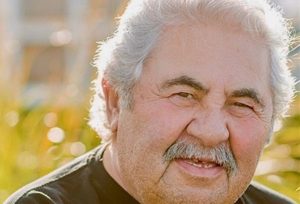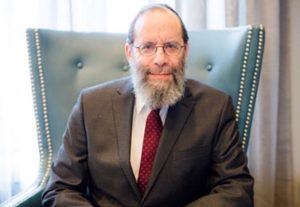TORONTO — I’ll start by admitting something that I am truly ashamed of.
When I walked into Avrum Rosensweig’s office two weeks ago, and he said, “The truth is, we all ask the question, ‘Could it be me?’” I thought to myself, “I never asked myself that question in 23 years – until last night.”
Rosensweig was referring to Ve’ahavta’s new campaign to help Toronto’s homeless. The “Could It Be Me” campaign aims to show people that homelessness is not about the person, but about their circumstances and support system, and that homelessness is something that could happen to anyone.
Rosensweig is the founder and president of Ve’ahavta – the Canadian Jewish Humanitarian and Relief Committee, a Toronto-based organization dedicated to tzedakah and tikkun olam, or repairing the world, both in the city and abroad.
The night before meeting Rosensweig, I volunteered with Ve’ahavta’s Mobile Jewish Response to the Homeless (MJRH), a van that drives through Toronto distributing food, drink, clothing and personal hygiene supplies to the city’s homeless population. Volunteers, often for the first time, speak to the people they meet on the street.
I had no idea what to expect. The most interaction I’d had with Toronto’s homeless was passing by them on the way to class and occasionally offering them some food or coins. I never stopped to talk to a homeless person. I never spent much time thinking about how they ended up on the street.
I certainly never considered that any of them could have once come from a comfortable, loving home like mine.
“People who are poor are empathetic, more so than people who are comfortable,” Rosensweig told me, and after what I saw that evening, there was no way I could argue.
While I found myself unable to imagine what it’s like curling up under a thin blanket on the concrete courtyard of Toronto’s City Hall, the homeless people that I met had a very clear understanding of their neighbours’ discomfort.
Time and time again, I watched in surprise as people who didn’t know where their next meal would come from refused second helpings of sandwiches or chocolate. Unlike me, they thought of the next person down the street who would need that extra sandwich, maybe more than they did.
“Ask someone who lives on the street about giving and you will get a real dvar Torah,” Rosensweig said, and seeing the thoughtfulness with which the people I met treated Ve’ahavta’s generosity, I recognized that he was right.
The moment when the “could it be me” message really sank in was close to midnight in the heart of downtown Toronto. I was offering chocolates to two young people under a blanket covered with designs and doodles. The man and woman, who couldn’t have been older than me, were funny, bright and sweet – like many people I met that night. But at their age, with their sense of humour, they reminded me of my friends – and I couldn’t help but think that their lives might have started off similarly to my own.
I wasn’t bold enough to ask about their pasts, but just the possibility that I was right was enough to make me think, “What’s the real difference between us? Could I just as easily be the one sleeping outside tonight?”
Ve’ahavta partners with the law firm Torkin Manes for a week each year, and I found that the associates from the firm had their eyes opened in much the same way I did. One, Zoe Kalmanson, said that her experience with the homeless community left her “questioning how these bright, intellectual individuals had fallen through the cracks.”
Later, I asked Lauren Gostick, the young community outreach worker who drove the van, about her work. “Homelessness is a human problem – we are all human and responsible for picking up the pieces. I just happen to have made a career out of it,” she wrote in an email, explaining that the work she does is not about feeling good but about doing what she can to help.
Ve’ahavta also helps to get the homeless out of their situation in the long term. In fact, Theresa Schrader, a community poverty-relief associate at Ve’ahavta, was homeless for a decade. After winning Ve’ahavta’s creative-writing contest, Schrader made the decision to turn her life around, end her addiction to crack and to do something positive for the community.
She went to school for social services, and now works full time at Ve’ahavta, where she founded the Ve’ahavta Street Academy, a program that partners with George Brown College to help the homeless in Toronto gain access to education as a way to end the cycle of poverty.
“I’m very driven by the work that I do because I believe that some of the smartest people in the world live on the street,” Schrader said.
For Rosensweig, the work Ve’ahavta does is a way to create justice. A more accurate translation of the Hebrew “tzedakah,” which is often loosely translated to “charity,” is “justice,” he said. “Justice is a way of creating balance in the world,” he said, adding that the Torah commands us to help the strangers among us.
Like me, you may never have asked yourself if you could be in the same position as the homeless person you pass in a downtown street. You may even feel that you have nothing to do with them, but as Rosensweig reminded me, “One day you could be the stranger.”






